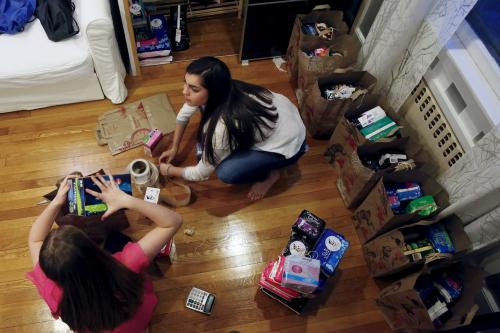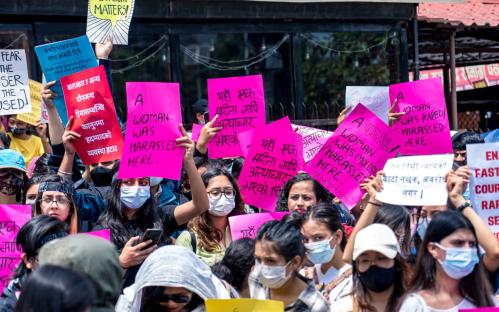

Editor’s Note: In August 2009, Carlos Pascual was confirmed as U.S. ambassador to Mexico. Learn more about his scholarship while at Brookings »
Ambassador Carlos Pascual, currently director of the State Department Office of Reconstruction and Stabilization, is joining the Brookings Institution as vice president and director of Foreign Policy Studies, Brookings President Strobe Talbott announced today.
Pascual will join Brookings February 1, replacing James Steinberg, who will become dean of the Lyndon Baines Johnson School of Public Policy at the University of Texas.
“Carlos is one of the most accomplished career diplomats of his generation,” Talbott said. “For over two decades, he has been an innovator in addressing some of the most important challenges facing the United States and the international community. His career has included work in, and on, Africa, Latin America, Europe, and the former Communist world. He has had experience both in the field and at high levels of the executive branch, advancing political and economic reform in developing and transitional countries, combating terrorism and weapons proliferation, and dealing with sources of instability. We are delighted that he will be joining us at Brookings.”
Pascual, 46, has served in his current role at the State Department since August 2004. He previously served as the U.S. ambassador to Ukraine from 2000 to 2003. In that capacity, Ambassador Pascual and his staff helped strengthen grassroots democratic initiatives and helped build a strong private sector. He also worked with the Ukrainian government on fighting terrorism and on helping secure their participation in the Iraq war.
As ambassador, he maintained high morale, productivity, and professional standards in a large and complex embassy, working under often difficult conditions in a nation moving from authoritarianism to democracy.
“The world is at a critical juncture in the conduct of international security policies,” Pascual noted. “The nature of power states and the challenges they present have changed completely from the Cold War era. We face threats from rogue states and non-state actors. The interlinkages among foreign policy, economics, and security are greater than ever. It is an honor to come to Brookings to work with such an outstanding team on issues that will shape national and global security and prosperity for the coming decades.”
From 1995 to 2000, Pascual worked in the White House National Security Council, ultimately as senior director for Russian, Ukrainian and Eurasian Affairs, where he helped guide U.S. policy during the most important political transformation at the end of the 20th century—the dismantlement of the former Soviet Union, the emergence of a democratizing Russia, and the safeguarding of nuclear weapons and material. He was well prepared for that task, having been a key member of the U.S. government team that dealt with South Africa and Mozambique in the years leading up to their own transitions.
Ambassador Pascual was born in Cuba, and immigrated to the United States with his parents at age three. He now lives in Washington, D.C.

Anne Sebert Kuhlmann, Ifeoma Obionu
November 27, 2024

November 27, 2024

Sudha Ghimire
November 27, 2024